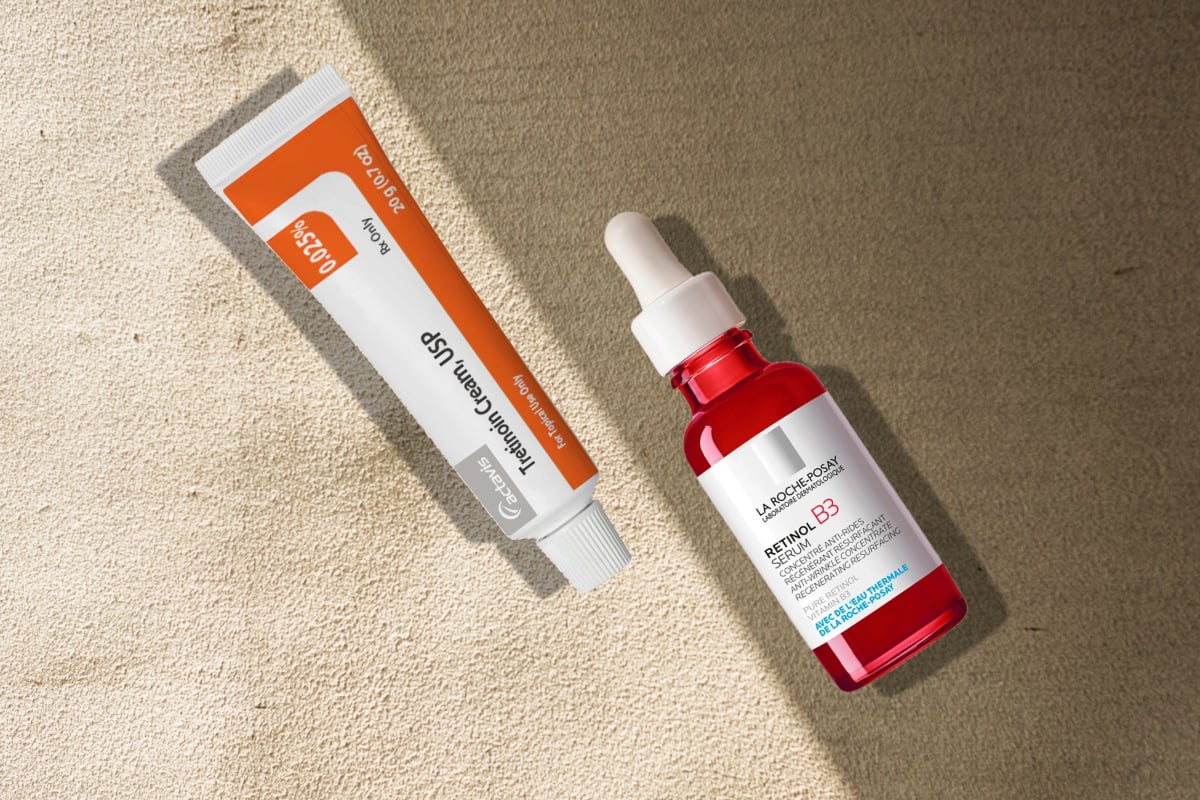What if we told you that you could find a dry-skin savior in your own pantry? Colloidal oatmeal is, well, oatmeal. The centuries-old technique of grinding oat grains into a fine powder has long been used (and heralded) to provide relief for those dealing with eczema, dermatitis, and dry, itchy, and irritated skin.[1] From strengthening to hydrating to soothing, it does it all, and it’s all natural, gentle, and safe even for the most sensitive complexions. Continue reading to learn more about colloidal oatmeal, including its benefits and how to use it, and why this goodie has remained a powerhouse skincare remedy even to this day.
What is colloidal oatmeal?
Technically speaking, a colloid is when one substance is dispersed throughout another like a mixture or blend. So basically, colloidal oatmeal is made by grinding oats (scientifically known as Avena sativa) into a fine powder. The colloidal form of oatmeal is what separates it from your everyday breakfast oats, being a rich source of fats, proteins, vitamins, enzymes, and antioxidants often used in skincare products.[2]
For a long time, colloidal oatmeal has played a major role in skincare to help maintain hydration and soothe various inflammatory skin conditions. This is because the active compounds found in the colloidal oatmeal act as emollients to instantly soften and repair, reduce inflammation, moisturize as well as strengthen the skin’s barrier and protect it from external aggressors and irritants.[3][4]
Colloidal oatmeal benefits for skin
Your skin will gain plenty of benefits from adding colloidal oatmeal to your beauty routine. These include:
Antioxidant and anti-inflammatory
Thanks to its anti-inflammatory properties, colloidal oatmeal can reduce the activity of proteins like cytokines responsible for triggering inflammation in body cells.[5] Oatmeal is also made up of avenanthramides, the main phenolic compound found in oats that exhibit antioxidant effects like protecting the skin from environmental aggressors, which often irritate and cause cell damage.
Moisturizes
Every skin can benefit from a boost of moisture from colloidal oatmeal. Because it contains plenty of polysaccharides (60-64%), which are responsible for the skin’s natural ability to retain water, it can provide deep hydration to quench thirsty complexions.[6] Studies also found that colloidal oatmeal prevents transepidermal water loss (TEWL), thereby maintaining proper moisture levels.[7] Since it is made up of soluble fiber and a high concentration of starches, it creates a protective film over the surface to lock the moisture while binding water within. Just for the record, oat-based moisturizers are considered as effective as ceramide-based creams in improving TEWL.[8]
Improves the skin barrier
The topical application of colloidal oatmeal has also been proven to restore and strengthen the protective barrier. Precisely, colloidal oatmeal boosts the production of ceramides, cholesterol, and free fatty acids, which are lipids that form the protective barrier and have a key role in reducing water loss and hindering irritants from entering the skin.[8] During a 2016 clinical study, a lotion with colloidal oatmeal showed substantial improvements in skin dryness, hydration, and barrier repair following daily application. In other news, the barrier-restoring benefits of colloidal oatmeal can help with a variety of skin woes, including dehydration, dermatitis, and sensitivities.
Protects
Colloidal oatmeal contains flavonoids and phenols, which are antioxidants that protect the skin against UV damage. Also, when topically applied, colloidal oatmeal coats the skin’s surface with an occlusive layer to hinder water loss and block pollutants and allergens from penetrating the skin.
Soothes dry, itchy, and inflamed skin
The most popular use of colloidal oatmeal in skincare is to relieve inflamed and irritated skin. Because it acts as an emollient, moisturizer, skin protector, and barrier-strengthener, colloidal oatmeal can relieve anything from redness, irritation, itchiness, and dryness. For instance, a 1% colloidal oatmeal cream was found clinically effective in improving mild to moderate atopic dermatitis as well as ameliorative eczema.[7][9]
Supports skin repair
Finally, colloidal oatmeal has been researched to promote skin repair after exposure to chemicals (such as alpha-hydroxy acids, surfactants, and retinoids), UV, and other environmental aggressors.
How safe is it?
Colloidal oatmeal is FDA approved as a safe skin protectant and has been recommended by dermatologists for years. It’s well tolerated by most people, gentle, non-irritating, and non-comedogenic. Also, most colloidal oatmeal preparations are safe and cosmetically stable and do not irritate the skin. However, oat allergies are not uncommon, so be cautious if you notice any burning or irritation, though that’s unlikely to happen.
How to use
Colloidal oatmeal can be found in a variety of skincare formulations ranging from moisturizers, lotions, cleansers, and powders. Generally, most products containing colloidal oatmeal are gentle enough to be used twice daily, in the morning and nighttime routine.
If you have dry or sensitive skin, it’s recommended to use a rich colloidal oatmeal cream or lotion up to two times a day to maintain hydration and support barrier recovery. On the other hand, if your skin is oily or prone to breakouts, use a lightweight, non-comedogenic formula.
We suggest using colloidal oatmeal in the shower or right after. You’ll be able to work up a nice lather by scrubbing the oatmeal solution against your skin for a gentle cleansing and exfoliating effect. Colloidal oatmeal is also something you’d want to apply after retinol, glycolic acid, or cosmetic procedures since it can accelerate healing and mitigate side effects.
Read next: 8 Best Colloidal Oatmeal Skincare Products To Rescue Dry, Irritated and Sensitive Skin
Sources
Women’s Concepts uses reliable sources, including dermatologists’ insights, clinical trials, and scientific journals, to find accurate information and support all the facts shared in our articles. All statements and claims have clear and legit references. Read our editorial policy to learn more about our sources of information, our process of researching and fact-checking the content, and how our team strives to keep all articles updated, completed, and trustworthy.
- Johnson & Johnson Skin Research Center, Colloidal Oatmeal (Avena Sativa) Improves Skin Barrier Through Multi-Therapy Activity, June 2016.
- Kurtz ES, Wallo W. Colloidal oatmeal: history, chemistry and clinical properties. J Drugs Dermatol. 2007 Feb.
- Reynertson KA, Garay M, Nebus J, Chon S, Kaur S, Mahmood K, Kizoulis M, Southall MD. The anti-inflammatory activities of colloidal oatmeal (Avena sativa) contribute to the effectiveness of oats in the treatment of itch associated with dry, irritated skin. J Drugs Dermatol. 2015 Jan.
- Ilnytska O, Kaur S, Chon S, Reynertson KA, Nebus J, Garay M, Mahmood K, Southall MD. Colloidal Oatmeal (Avena Sativa) Improves Skin Barrier Through Multi-Therapy Activity. J Drugs Dermatol. 2016 Jun 1.
- Reynertson KA, Garay M, Nebus J, Chon S, Kaur S, Mahmood K, Kizoulis M, Southall MD. Anti-inflammatory activities of colloidal oatmeal (Avena sativa) contribute to the effectiveness of oats in treatment of itch associated with dry, irritated skin. J Drugs Dermatol. 2015 Jan.
- Criquet M, Roure R, Dayan L, Nollent V, Bertin C. Safety and efficacy of personal care products containing colloidal oatmeal. Clin Cosmet Investig Dermatol. 2012.
- Sobhan M, Hojati M, Vafaie SY, Ahmadimoghaddam D, Mohammadi Y, Mehrpooya M. The Efficacy of Colloidal Oatmeal Cream 1% as Add-on Therapy in the Management of Chronic Irritant Hand Eczema: A Double-Blind Study. Clin Cosmet Investig Dermatol. 2020 Mar 25.
- Ilnytska O, Kaur S, Chon S, Reynertson KA, Nebus J, Garay M, Mahmood K, Southall MD. Colloidal Oatmeal (Avena Sativa) Improves Skin Barrier Through Multi-Therapy Activity. J Drugs Dermatol. 2016 Jun 1.
- Lisante TA, Nunez C, Zhang P, Mathes BM. A 1% Colloidal Oatmeal Cream Alone is Effective in Reducing Symptoms of Mild to Moderate Atopic Dermatitis: Results from Two Clinical Studies. J Drugs Dermatol.




![Does resveratrol in red wine benefit your skin? While sipping on a glass of red wine can be a delightful experience, relying on it for skincare benefits is not the best idea. Sure, red wine contains a smidge of resveratrol, but let's put things into perspective. The concentration of resveratrol in red wine is relatively low. Red wines, specifically Pinot noir from France, typically contain 0.361-1.972 mg of resveratrol per liter.[8] To hit that reference dose of 500mg of resveratrol, you'd need to drink a lot of wine. We're talking about downing anywhere from 100 to 1000 glasses per day. It's a scene straight out of a wine lover's wildest dreams, but definitely not the healthiest approach. Resveratrol Benefits for Skin](https://womensconcepts.com/wp-content/uploads/2022/03/Resveratrol-Benefits-for-Skin.jpg)
